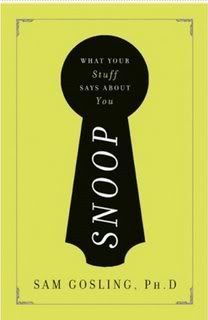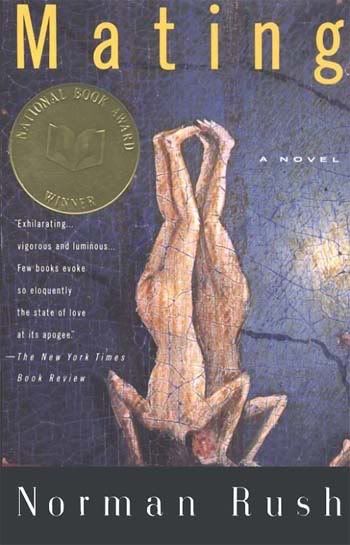Where do posts go when the computer eats them?
I was thinking the other day about how interesting (and weird and scary and sad) it is that some of the most important things I own exist only in pixels.
And I guess this is really the way of the future, and it doesn't bother me all that much because I have access to the technology that makes it possible. Sometimes I miss having printed photos to hold (all of mine now sit quietly in my hard drive), but I know that I could make printed photos from a disc or a flashcard all the livelong day if I wanted to at to my local Walgreens/Target/Wal-Mart. And having MP3s instead of CDs, well, I'm not quite there yet, but someday I probably will be. And I'll miss having the printed liner notes, but I don't ever really look at those anyway, and you can download them from iTunes if you buy a whole album.
Lately, my technothinking has been inspired in part by something Nick and I drunkenly talked about at Cox's and in a subsequent sober e-mail conversation: Seriously, what is the future of newspapers? He said his boss at The State Gazette isn't worried, especially about the fate of small local papers. I can see where he's coming from, especially concerning small, family-owned papers, but for the bigger papers? When shareholders are involved, it gets a lot more squicky (that's the technical term).
It's something I'm cautiously not-so-optimistic about, since they're ringing the alarm bells -- albeit quietly -- where I work. And everywhere else. Circulation is shrinking, layoffs are rampant, publishers are erroneously whining about the rising cost of newsprint. The whole industry knows that we are on the lip of a major paradigm shift, and no one is willing to come out and say what I think the youngest of us already know: Get it all online or die.
The 24-hour news cycle has been the gold standard for years now; newspapers have stubbornly insisted that they can continue to make their readers wait until 5 a.m. every morning to learn the day's news, but we're seeing that readers are spurning the traditional we-tell-you-what's-best-and-when attitude the big omnipresent papers have traditionally fostered. And this pains me, because I'm one of those assholes who does think the print media knows what's best for the people. But I also know that that makes me and everyone else who thinks that an asshole, and that it's losing us our readership and trust and credibility in the community. That attitude just won't fly anymore. And, ultimately, in the words of David Bishop, if you don't have credibility, you don't have anything.
It's clear, I think, that modern news consumers are beginning to expect news in real-time: constantly updated, dynamic, in-depth stories that are available as soon as they come into existence. People don't have to wait until the paperboy hurls their paper into the shrubbery at dawn to learn what's happening in the world, so they won't and they don't. They can do it instantly at any minute of the day over the web. And we all know how our society feels about instant gratification.
So newspapers need to swallow their pride and start shaking up their very foundations and structures. No more should there be holding a story in the can until there is space or time to run it. No more of the "it's news until we print it" attitude that means even day-old stuff gets treated as new news if it didn't get in the day before. No more of the slapping the printed product on the web and wondering why more people aren't clogging the hit counter.
It's going to mean reporters and editors constantly filing updates on the online versions of the stories. It's going to mean aggressive, thoughtful linking within stories. It's going to mean the printed product will serve as a daily digest of news with the latest updates -- like always -- but the online sphere is where the news will need to flourish and grow. This creates a tremendous 24-hour workload that might not be cost-effective when you take into consideration how cheap (and, as of now, underutilized) online advertising is. Can papers continue to offer their web sites for free? I hate to be prompted to enter my zip code when I view a web site, much less be asked to pay to see the news.
So how will the future newspaper, if its meat is online, make money to fuel the staff it will take to create a 24-hour print news cycle? That's the crux of the issue, I think. That's why more papers haven't taken that plunge yet. That, and they just don't think it's worth the risk to try and apply that 24-hour cycle to their mostly local news, which doesn't operate on the kind of constant cycle world and even national news does. So mid-sized papers like the CA are sort of caught in the middle, and I think it shows in our ambivalence about what the next step is.
Too scary? OK, go read this funny story about Tom "Crazyteeth" Cruise and Katie "Slackeyed" Holmes. It's a hoot and three-quarters.
And I guess this is really the way of the future, and it doesn't bother me all that much because I have access to the technology that makes it possible. Sometimes I miss having printed photos to hold (all of mine now sit quietly in my hard drive), but I know that I could make printed photos from a disc or a flashcard all the livelong day if I wanted to at to my local Walgreens/Target/Wal-Mart. And having MP3s instead of CDs, well, I'm not quite there yet, but someday I probably will be. And I'll miss having the printed liner notes, but I don't ever really look at those anyway, and you can download them from iTunes if you buy a whole album.
Lately, my technothinking has been inspired in part by something Nick and I drunkenly talked about at Cox's and in a subsequent sober e-mail conversation: Seriously, what is the future of newspapers? He said his boss at The State Gazette isn't worried, especially about the fate of small local papers. I can see where he's coming from, especially concerning small, family-owned papers, but for the bigger papers? When shareholders are involved, it gets a lot more squicky (that's the technical term).
It's something I'm cautiously not-so-optimistic about, since they're ringing the alarm bells -- albeit quietly -- where I work. And everywhere else. Circulation is shrinking, layoffs are rampant, publishers are erroneously whining about the rising cost of newsprint. The whole industry knows that we are on the lip of a major paradigm shift, and no one is willing to come out and say what I think the youngest of us already know: Get it all online or die.
The 24-hour news cycle has been the gold standard for years now; newspapers have stubbornly insisted that they can continue to make their readers wait until 5 a.m. every morning to learn the day's news, but we're seeing that readers are spurning the traditional we-tell-you-what's-best-and-when attitude the big omnipresent papers have traditionally fostered. And this pains me, because I'm one of those assholes who does think the print media knows what's best for the people. But I also know that that makes me and everyone else who thinks that an asshole, and that it's losing us our readership and trust and credibility in the community. That attitude just won't fly anymore. And, ultimately, in the words of David Bishop, if you don't have credibility, you don't have anything.
It's clear, I think, that modern news consumers are beginning to expect news in real-time: constantly updated, dynamic, in-depth stories that are available as soon as they come into existence. People don't have to wait until the paperboy hurls their paper into the shrubbery at dawn to learn what's happening in the world, so they won't and they don't. They can do it instantly at any minute of the day over the web. And we all know how our society feels about instant gratification.
So newspapers need to swallow their pride and start shaking up their very foundations and structures. No more should there be holding a story in the can until there is space or time to run it. No more of the "it's news until we print it" attitude that means even day-old stuff gets treated as new news if it didn't get in the day before. No more of the slapping the printed product on the web and wondering why more people aren't clogging the hit counter.
It's going to mean reporters and editors constantly filing updates on the online versions of the stories. It's going to mean aggressive, thoughtful linking within stories. It's going to mean the printed product will serve as a daily digest of news with the latest updates -- like always -- but the online sphere is where the news will need to flourish and grow. This creates a tremendous 24-hour workload that might not be cost-effective when you take into consideration how cheap (and, as of now, underutilized) online advertising is. Can papers continue to offer their web sites for free? I hate to be prompted to enter my zip code when I view a web site, much less be asked to pay to see the news.
So how will the future newspaper, if its meat is online, make money to fuel the staff it will take to create a 24-hour print news cycle? That's the crux of the issue, I think. That's why more papers haven't taken that plunge yet. That, and they just don't think it's worth the risk to try and apply that 24-hour cycle to their mostly local news, which doesn't operate on the kind of constant cycle world and even national news does. So mid-sized papers like the CA are sort of caught in the middle, and I think it shows in our ambivalence about what the next step is.
Too scary? OK, go read this funny story about Tom "Crazyteeth" Cruise and Katie "Slackeyed" Holmes. It's a hoot and three-quarters.




















0 Comments:
Post a Comment
<< Home